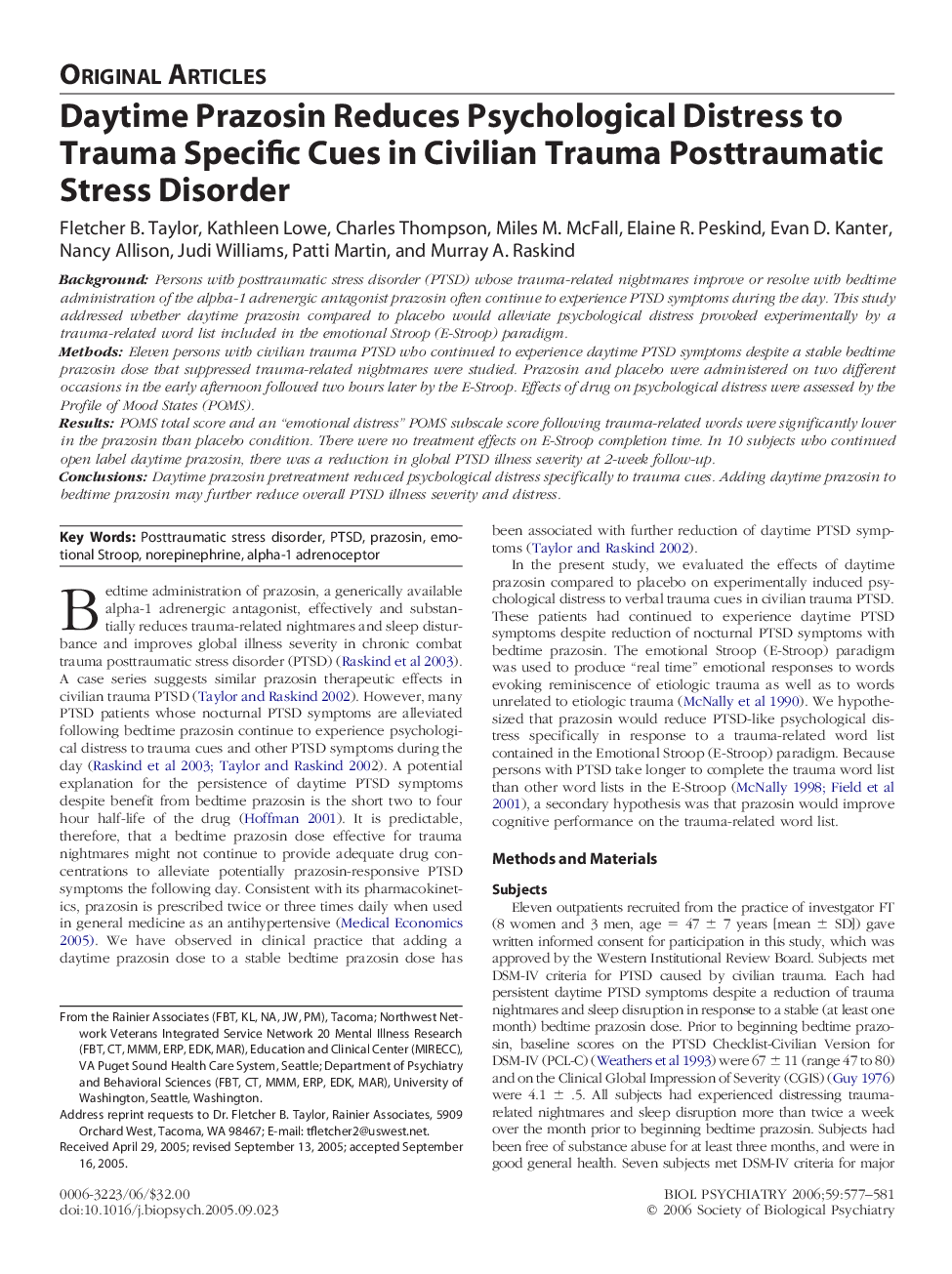| Article ID | Journal | Published Year | Pages | File Type |
|---|---|---|---|---|
| 4181265 | Biological Psychiatry | 2006 | 5 Pages |
BackgroundPersons with posttraumatic stress disorder (PTSD) whose trauma-related nightmares improve or resolve with bedtime administration of the alpha-1 adrenergic antagonist prazosin often continue to experience PTSD symptoms during the day. This study addressed whether daytime prazosin compared to placebo would alleviate psychological distress provoked experimentally by a trauma-related word list included in the emotional Stroop (E-Stroop) paradigm.MethodsEleven persons with civilian trauma PTSD who continued to experience daytime PTSD symptoms despite a stable bedtime prazosin dose that suppressed trauma-related nightmares were studied. Prazosin and placebo were administered on two different occasions in the early afternoon followed two hours later by the E-Stroop. Effects of drug on psychological distress were assessed by the Profile of Mood States (POMS).ResultsPOMS total score and an “emotional distress” POMS subscale score following trauma-related words were significantly lower in the prazosin than placebo condition. There were no treatment effects on E-Stroop completion time. In 10 subjects who continued open label daytime prazosin, there was a reduction in global PTSD illness severity at 2-week follow-up.ConclusionsDaytime prazosin pretreatment reduced psychological distress specifically to trauma cues. Adding daytime prazosin to bedtime prazosin may further reduce overall PTSD illness severity and distress.
